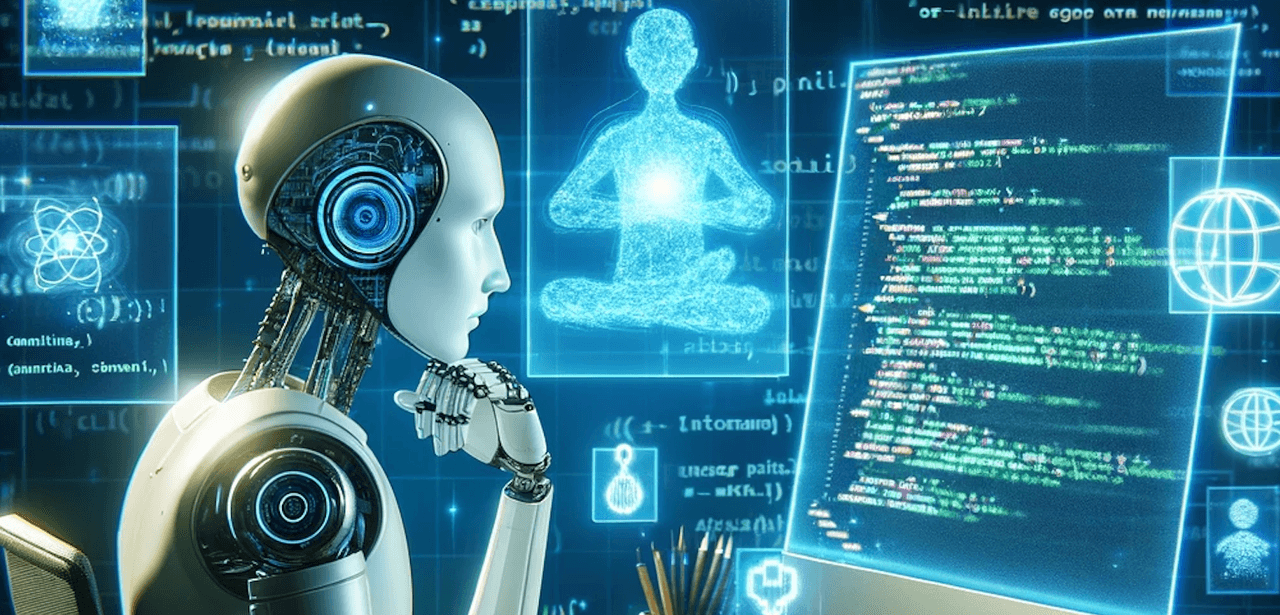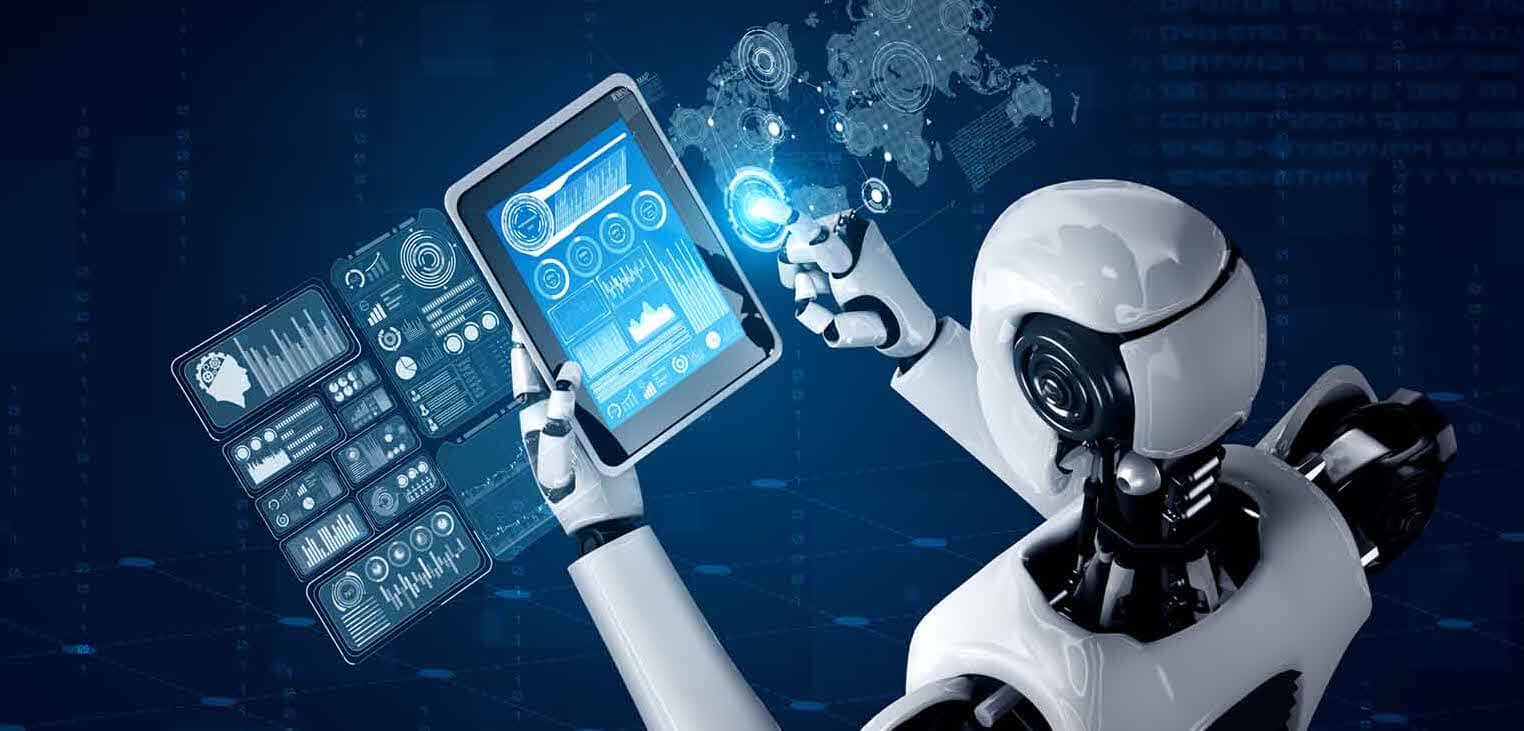Beyond Automation: How AI is Transforming Web Development for a Smarter Digital Future
Introduction
Artificial Intelligence (AI) is no longer confined to the realm of science fiction; it is now a critical driver of innovation across various industries, including web development. As the digital world becomes more sophisticated, AI is evolving beyond simple automation to redefine how websites are created, optimized, and experienced. From dynamic content generation to AI-enhanced SEO and accessibility improvements, AI tools are empowering developers to build smarter, more efficient, and user-centric websites. In this article, we’ll explore the innovative ways AI is transforming web development and the new possibilities it unlocks for developers and businesses alike.

AI's Expanding Role in Web Development
AI in web development extends beyond the automation of repetitive tasks to involve advanced algorithms and machine learning techniques that create more intelligent and responsive digital environments. These AI-driven tools enable websites to learn from user behavior, optimize performance in real-time, and dynamically create content tailored to individual users.
Key technologies such as Natural Language Processing (NLP), computer vision, and AI-driven analytics play a crucial role in this transformation. NLP allows websites to interact with users in a more human-like manner, while computer vision enhances visual content and accessibility. AI-driven analytics, on the other hand, provide deep insights into user behavior, driving data-driven decisions that significantly enhance the overall user experience.
How AI is Transforming Web Development
-
Dynamic Content Generation: AI tools like OpenAI's GPT models and Copy.ai are changing how content is created on the web. These tools generate high-quality, relevant content dynamically based on user behavior or input, allowing for a personalized experience without manual content updates. For example, AI can help news websites generate real-time summaries of breaking news stories customized to user interests, significantly boosting engagement and retention.
-
AI-Enhanced SEO Optimization: Search Engine Optimization (SEO) is a vital component of web traffic generation, and AI tools like Clearscope and MarketMuse are making it more effective. These tools analyze top-performing content, suggest keyword improvements, refine content structure, and optimize internal linking strategies to improve search engine rankings. AI-powered chatbots also play a role by increasing user engagement and dwell time, further enhancing SEO performance.
-
Accessibility Improvements with AI: Making the web more inclusive is a growing priority, and AI is a key enabler in this area. AI-driven tools can automatically generate alt text for images, convert text to speech, and create accessible color schemes. For instance, Microsoft’s Seeing AI app uses computer vision to describe images for visually impaired users, improving accessibility and ensuring compliance with legal standards like the Americans with Disabilities Act (ADA).
-
AI-Powered Web Analytics: Traditional web analytics provide a historical view of user behavior, while AI-powered tools offer predictive insights. Platforms like Hotjar and Google Analytics 4 use AI to predict user behavior, identify trends, and suggest optimizations. These insights enable developers to understand what drives engagement and retention, allowing for real-time adjustments to improve user experience.
-
Conversational Interfaces and AI Chatbots: AI-powered chatbots and virtual assistants are becoming essential for enhancing customer support and engagement. These tools, powered by NLP, can understand complex user queries, provide instant support, and guide users through the website. Companies like Drift and Intercom leverage AI chatbots to improve customer interaction, driving higher conversion rates and satisfaction.

Advantages and Challenges of AI in Web Development
Advantages:
-
Enhanced Personalization: AI allows websites to offer highly tailored experiences by analyzing user behavior in real time, increasing engagement and satisfaction.
-
Improved SEO and Content Strategy: AI tools help optimize content more effectively by analyzing vast data sets to identify relevant keywords and content structures.
-
Increased Accessibility: AI can automatically make websites more accessible, expanding the potential audience and ensuring regulatory compliance.
Challenges:
-
Data Dependency and Privacy: AI's reliance on data raises concerns about user privacy and data security, necessitating compliance with laws like GDPR and CCPA.
-
Complexity and Integration: Implementing AI tools can be technically challenging and may require integration with existing systems, posing a barrier for smaller businesses.
-
Bias in Algorithms: AI models can reinforce biases present in training data, leading to unintended consequences in user experience and decision-making.
Practical Tips for Leveraging AI in Web Development
-
Focus on Content Tools: Start with AI-driven content generation and optimization tools like Jasper AI to create engaging, SEO-friendly content.
-
Implement Accessibility Solutions: Use AI tools such as AccessiBe to automate accessibility compliance and ensure your site is inclusive.
-
Adopt Predictive Analytics: Use AI-powered analytics to gain deeper insights into user behavior and make real-time optimizations.
-
Integrate Conversational AI: Deploy AI chatbots to enhance user engagement and support while minimizing bias.
-
Ensure Compliance and Ethics: Regularly review AI practices for data privacy and ethical standards to maintain user trust.
Conclusion
AI is redefining the landscape of web development, moving beyond automation to enable more intelligent, personalized, and inclusive websites. While challenges like data privacy and integration complexities exist, the opportunities for enhanced user engagement and optimized performance are immense. By leveraging AI strategically and staying updated on technological advancements, developers can build websites that are functional, forward-thinking, and user-centric. Embrace AI to shape the future of web development and stay ahead in the digital landscape.